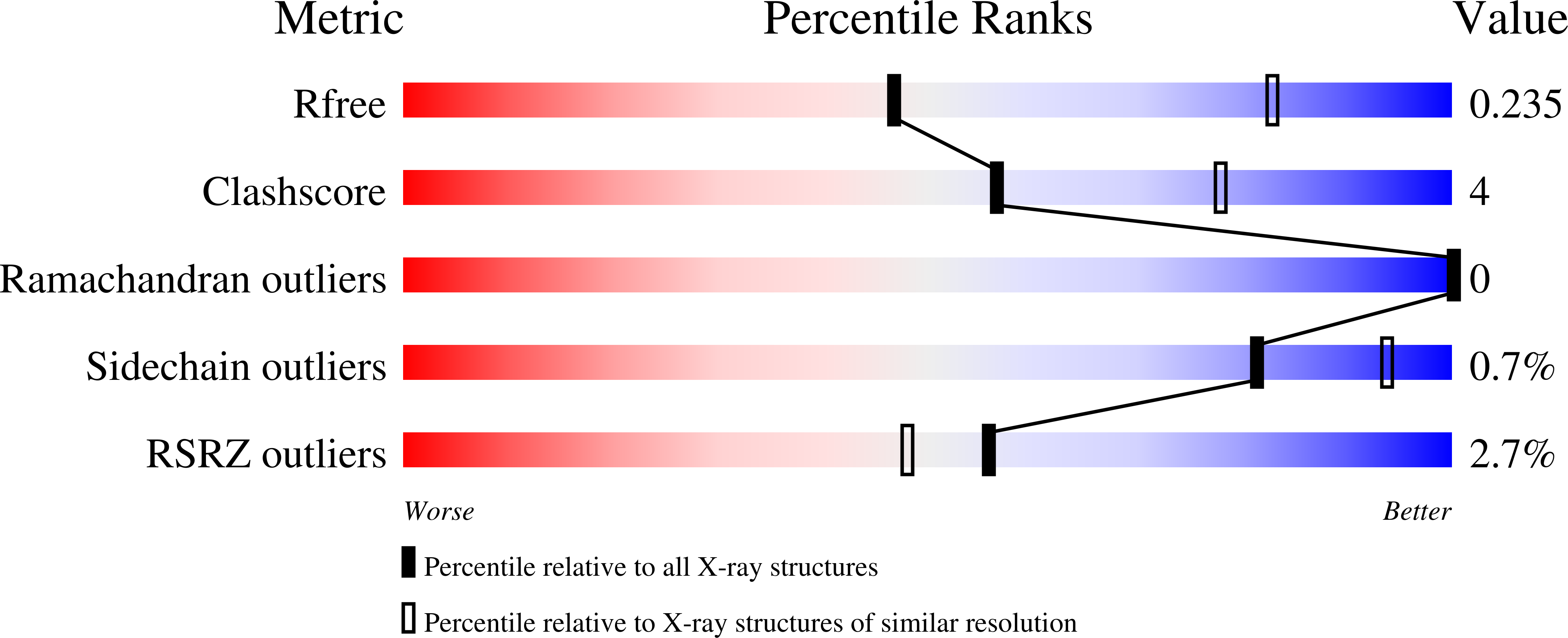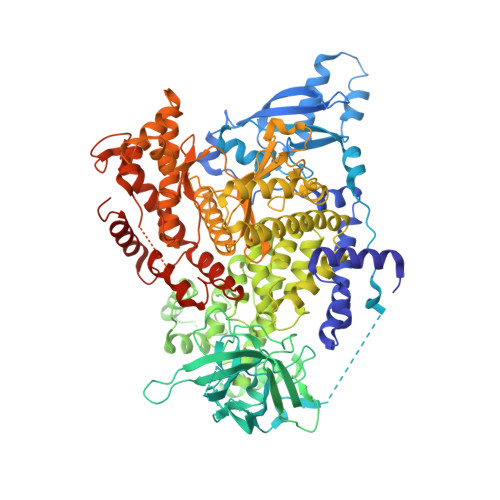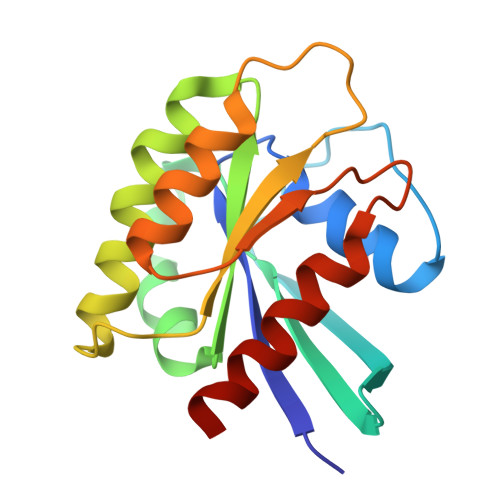Structural insights into isoform-specific RAS-PI3K alpha interactions and the role of RAS in PI3K alpha activation.
Czyzyk, D., Yan, W., Messing, S., Gillette, W., Tsuji, T., Yamaguchi, M., Furuzono, S., Turner, D.M., Esposito, D., Nissley, D.V., McCormick, F., Simanshu, D.K.(2025) Nat Commun 16: 525-525
- PubMed: 39788953
- DOI: https://doi.org/10.1038/s41467-024-55766-x
- Primary Citation of Related Structures:
9B4Q, 9B4R, 9B4S, 9B4T, 9C15 - PubMed Abstract:
Mutations in RAS and PI3K¦Á are major drivers of human cancer. Their interaction plays a crucial role in activating PI3K¦Á and amplifying the PI3K-AKT-mTOR pathway. Disrupting RAS-PI3K¦Á interaction enhances survival in lung and skin cancer models and reduces tumor growth and angiogenesis, although the structural details of this interaction remain unclear. Here, we present structures of KRAS, RRAS2, and MRAS bound to the catalytic subunit (p110¦Á) of PI3K¦Á, elucidating the interaction interfaces and local conformational changes upon complex formation. Structural and mutational analyses highlighted key residues in RAS and PI3K¦Á impacting binding affinity and revealed isoform-specific differences at the interaction interface in RAS and PI3K isoforms, providing a rationale for their differential affinities. Notably, in the RAS-p110¦Á complex structures, RAS interaction with p110¦Á is limited to the RAS-binding domain and does not involve the kinase domain. This study underscores the pivotal role of the RAS-PI3K¦Á interaction in PI3K¦Á activation and provides a blueprint for designing PI3K¦Á isoform-specific inhibitors to disrupt this interaction.
Organizational Affiliation:
NCI RAS Initiative, Cancer Research Technology Program, Frederick National Laboratory for Cancer Research, Frederick, MD, USA.



















